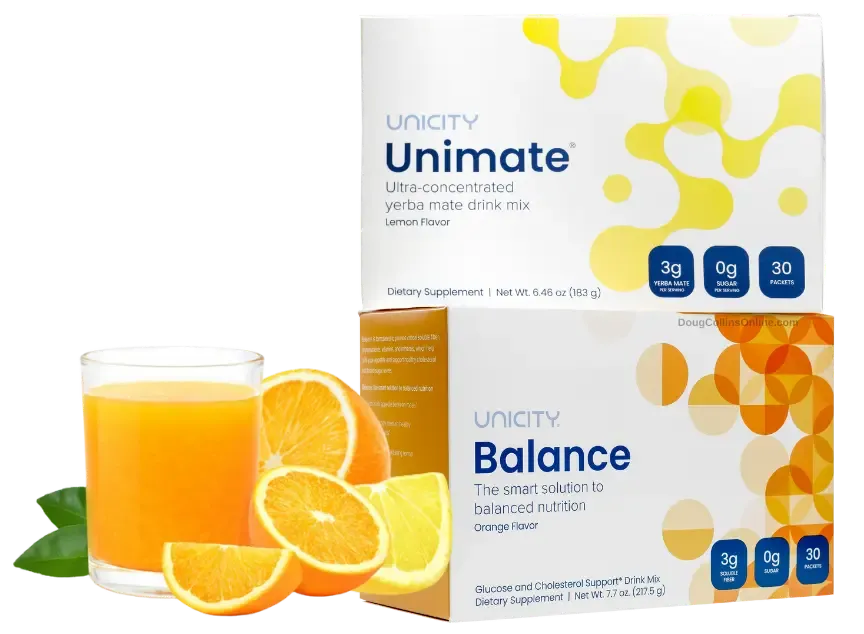How Protein Supports Healthy Weight Loss & Blood Sugar Control
Jan 07, 2023
Protein, an essential macronutrient, is fundamental to our body's structure, aiding in the maintenance and repair of tissues.
Though fiber is lauded for its benefits in weight management and blood sugar control within the Feel Great System, protein's significance to overall health and well-being is equally paramount
Article At-A-Glance
- Protein is an essential macronutrient that is often overlooked when trying to lose weight, but it can actually be very helpful in achieving weight loss goals.
- Protein has a number of benefits that support healthy weight loss, such as its ability to increase metabolism and keep you feeling full and satisfied.
- In addition to its effects on weight loss, protein also helps regulate blood sugar levels, which is particularly important for people with type 2 diabetes.
- Despite its importance, many people do not get enough protein in their diet. It is important to pay attention to your daily protein intake to ensure that you are getting enough.
- There are many different sources of dietary protein, including both animal and plant-based options.
- Protein can also be useful for those following an intermittent fasting routine, as it can help keep you feeling satisfied and prevent hunger during fasting periods.
- Protein shakes can be a convenient way to "supplement" your daily protein intake and make it easier to reach your protein goals.
- Protein is an important part of the Feel Great System and plays a role in helping people achieve great results.
Why Protein is Important
Protein is a macronutrient that is found in many foods, including meats, dairy products, beans, and nuts. It is made up of smaller units called amino acids, which are the building blocks of the body's cells and tissues.
Protein is important for many bodily functions, including:
- Building and repairing tissues: Protein is essential for building and repairing the body's cells and tissues. This is important for growth and development, as well as wound healing and recovery from injury or illness.
- Maintaining healthy skin, hair, and nails: Protein is a major component of the body's skin, hair, and nails. Consuming enough protein can help keep these tissues healthy and strong.
- Supporting immune function: Protein is an important part of the immune system, as it helps the body produce antibodies that fight infection and disease.
- Providing energy: Protein can be used by the body as a source of energy, especially during exercise or periods of increased physical activity.
When you eat enough protein, you stay full longer. Reduce blood sugar spikes, burn more calories, burn more fat, build muscle, and recover better after exercise. But if you don't eat enough protein, you become hungry faster. May consume more calories. Put yourself at risk of blood sugar highs and lows. Lose more muscle mass as you lose weight, and have more cravings.
Protein & Weight Loss
There are several ways in which protein can help with weight loss:
- Protein can increase feelings of fullness, reducing appetite and preventing overeating. This can be especially helpful for those trying to lose weight, as it can help control calorie intake and support weight loss.
- Protein has a high thermic effect, meaning that the body burns more calories digesting protein than it does digesting other macronutrients like carbohydrates or fat. This can boost the body's metabolism and support weight loss.
- Protein can preserve lean muscle mass during weight loss. When the body loses weight, it can lose both fat and muscle. However, consuming enough protein can help preserve lean muscle mass, which can maintain a healthy metabolism and support weight loss.
In addition to its satiating effects, protein can also aid in weight loss by increasing metabolism and promoting the loss of body fat. When you eat protein, your body expends more energy (calories) digesting and processing it compared to other macronutrients. This is known as the thermic effect of food (TEF). By increasing your protein intake, you can boost your metabolism and burn more calories throughout the day.
Protein and Insulin Resistance
Protein can also help with weight loss by preserving muscle mass. When you lose weight, you want to make sure that you are losing fat and not muscle. Protein is essential for maintaining and building muscle, as skeletal muscle is the most abundant tissue in your body, comprising 40% to 55% of your body mass, and is the primary glucose disposal. After meals, about 80% of glucose is deposited into skeletal muscle. The loss of muscle mass with advancing age is thought to be one of the primary drivers of insulin resistance in older adults.
But it doesn't end there. Since muscle makes up nearly half of your body's mass, so once our body runs out of sugar in the form of glycogen, it uses fat, especially if you are metabolically flexible. So, muscle is also the main energy user of fat in your body. The declining skeletal muscle strength and progressive mobility impairment that comes with age tends to reduce daily physical activity, which also contributes to metabolic dysfunction.
While protein can be beneficial for weight loss, it's important to consume it in appropriate amounts and from a variety of sources. Overconsumption of unhealthy protein can lead to weight gain, just like overeating any other macronutrient. It's also important to focus on getting protein from a variety of sources, including plant-based sources like beans, nuts, and seeds, in addition to animal-based sources like meat, poultry, and fish.
Protein & Blood Sugar Control
Protein can also be helpful for controlling blood glucose, such as managing type 2 diabetes. This chronic condition affects the way the body processes blood sugar, and it is often associated with a diet high in processed foods and added sugars.
Protein can help manage blood sugars in several ways.
- It can help slow the digestion of carbohydrates, which can help prevent blood sugar spikes after meals. This is important because blood sugar spikes can lead to increased food cravings and weight gain, which can worsen type 2 diabetes.
- Protein can help improve insulin sensitivity, which is the body's ability to use insulin effectively. Insulin is a hormone that helps regulate blood sugar levels. By improving insulin sensitivity, protein can help manage type 2 diabetes.
- Protein can help promote weight loss, which is an important factor in managing type 2 diabetes. Being overweight or obese can increase the risk of developing type 2 diabetes, so maintaining a healthy weight is crucial for managing the condition.
Understanding Your Daily Needs
To achieve weight loss and blood sugar control there are two factors to consider: controlling your carbohydrate intake and ensuring that you get enough protein. It is recommended to consume 0.8 grams of protein per kilogram of body weight per day, although the latest research suggests a minimum is about 1.2 grams per kilogram of body weight (0.54 grams/pound) per day. Athletes and the elderly could probably benefit from going up from that level to about 1.6 grams/kilogram (0.71 grams/pound).
In addition to meeting your protein needs, it is important to consume 30-40 grams of dietary fiber daily. Unfortunately, many people do not get enough protein and fiber in their daily diets. Tracking your food intake with apps like MyFitnessPal can be helpful for a number of reasons, including:
- Knowing your macros: MyFitnessPal allows you to track your intake of macronutrients (carbohydrates, protein, and fat) and see how it aligns with your daily goals. This can help you ensure that you are getting enough of each macronutrient to support your health and fitness goals.
- Identifying patterns: By tracking your food intake over time, you may be able to identify patterns in your eating habits that could be contributing to any weight gain or other health issues.
- Staying accountable: Tracking your food intake can help you stay accountable to your goals and make more mindful food choices.
- Monitoring progress: By tracking your food intake and physical activity, you can get a better sense of how your diet and exercise routine are impacting your health and fitness goals.
It's important to note that tracking your food intake should be used as a tool to support your health and wellness goals, rather than a way to obsess over every bite you eat.
Where Do I Get Protein?
it’s important to eat quality protein — so in addition to animal proteins like eggs and chicken breast, also aim for beans and legumes and protein from dairy and whole grains like quinoa. For those who do not eat meat, they can build a balanced diet around beans, legumes, peas, soy, nuts, seeds, and grains. It may make it easier to eat animal-based protein, it’s definitely possible and good for everyone’s overall health to add in some additional plant-based options as well.
There are a number of unhealthy protein sources that should be limited or avoided in a healthy diet. Some examples include:
- Processed meats: Deli meats, bacon, and sausage are high in saturated fat and sodium, and have been linked to an increased risk of heart disease and certain cancers.
- Fried proteins: Fried chicken, fish, and other highly processed protein sources are high in unhealthy, artery-clogging fats. These should be considered occasional foods.
- High-fat dairy products: Whole milk and other high-fat dairy products are high in saturated fat and calories, and should be limited in a healthy diet.
- Highly processed protein bars and shakes: These products often contain added sugars and other unhealthy additives. More on the topic of protein shakes later in this article.
It's important to remember that while protein is an important nutrient, choose healthy sources of protein to support overall health and well-being.
Protein when Intermittent Fasting
Intermittent fasting is a safe and effective dietary practice for most people, with benefits including weight management, normal cholesterol and blood sugar levels. Intermittent fasting involves a time-restricted eating schedule, alternating between periods of eating and fasting, typically with a fasting window of 12-16 hours. The most common intermittent fasting schedule is 16:8, where you eat all your meals during an eight-hour window and fast for the remaining 16 hours.
It's important to be mindful of what you eat during your eating periods, as consuming highly processed carbohydrates can negate the benefits of intermittent fasting. To get the most out of your fasting periods, prioritize protein, fiber, and healthy fats in your first meal after a fast.
Protein is a vital nutrient that supports tissue repair and has many other important functions in the body. Consuming protein at the beginning of the day can help you feel full and satisfied, making it easier to stick to your intermittent fasting schedule. Low carbohydrate meals may also be helpful for those practicing intermittent fasting, as they can help maintain stable blood sugar levels and reduce hunger and cravings.
The length of your fast should be tailored to your individual needs and lifestyle. While a 16-hour fast is generally considered optimal, you may find that 12 or 14 hours works better for you. The first week or two of intermittent fasting can be challenging, but if you're still struggling after a few weeks, it may be time to make adjustments.
The great thing about intermittent fasting is that it can be customized to fit any lifestyle. As long as you find a fasting window that works for you, you can enjoy its benefits for years to come.
The Role of Protein Shakes
Protein shake powders are a convenient way to nourish and satisfy your body. They can be used for a variety of purposes, including boosting protein intake, aiding in weight loss, serving as a meal replacement, improving athletic performance, building muscle mass, and promoting overall wellness.
When selecting a protein shake or meal replacement, it's important to consider the following factors:
- Macro Score: This is calculated as Protein (g) + Fiber (g) – Carbs (g). A higher score indicates that the shake is more filling and satisfying.
- Nutrient Score: Look for a product with a high number of vitamins and minerals that provide at least 100% of the daily value.
- Protein Amino Acid Score (PDCAAS): This score measures the quality of the protein in the shake. A higher score is generally better.
While these three criteria may not always be listed on product packaging, you can often find this information through a little research. Choose a protein shake or meal replacement that meets these requirements for optimal nourishment and satisfaction.
When shopping for a protein shake or meal replacement, be sure to avoid products that contain added sugars such as fructose corn syrup, as well as additives and filler ingredients. Look for products with a shorter list of ingredients, and pay attention to the sugar content. Avoid shakes with a high sugar content, as these are not much better than candy bars.
To find the right protein shake or meal replacement, you may need to do some research. Once you find a product that meets your needs, it can be a convenient and nutritious option when you're in a hurry.
One protein shake that I personally use and recommend to my clients is Unicity Lean Complete. It comes in chocolate or vanilla flavors, as well as a vegan vanilla option, and is specifically formulated to meet the requirements for a meal replacement.
Protein to Enhance the Feel Great System
The Feel Great System includes two powerful products, Unicity Balance fiber and Unimate yerba mate. Balance is a pre-meal drink that helps to slow carbohydrate absorption, promote proper digestion, and support cholesterol absorption. Unimate is a concentrated yerba mate drink that improves mood, enhances mental clarity, and increases energy.
Intermittent fasting is a key component of the Feel Great System, where you eat all your meals within an 8-10 hour window each day and fast for the remainder. This approach is designed to make it easier to reach your goals without relying solely on willpower.
While the Feel Great System products are incredibly effective, it's important to remember that we still have a role to play in our own health and wellness. Choosing healthier foods during our eating period is always a good decision, but it's important to recognize that we don't always have to be perfect. In an imperfect world, it's okay to not eat perfectly every day.
If you're ready to transform your health and achieve your weight loss goals, the Feel Great System is the perfect solution. By using the Feel Great products, following a time-based intermittent fasting schedule, and prioritizing protein while reducing highly processed carbs, you can experience amazing results. Don't wait any longer to start your journey to better health. Give the Feel Great System a try today and see the difference it can make for you!
Additionally, incorporating protein into your diet can have numerous benefits for weight loss and overall health. Not only does it increase satiety and boost metabolism, but it also helps to preserve muscle mass. Remember to consume protein in appropriate amounts and from a variety of sources to ensure you are getting all the nutrients your body needs.
Related Articles:
Feel Better Than You Have In Years!



